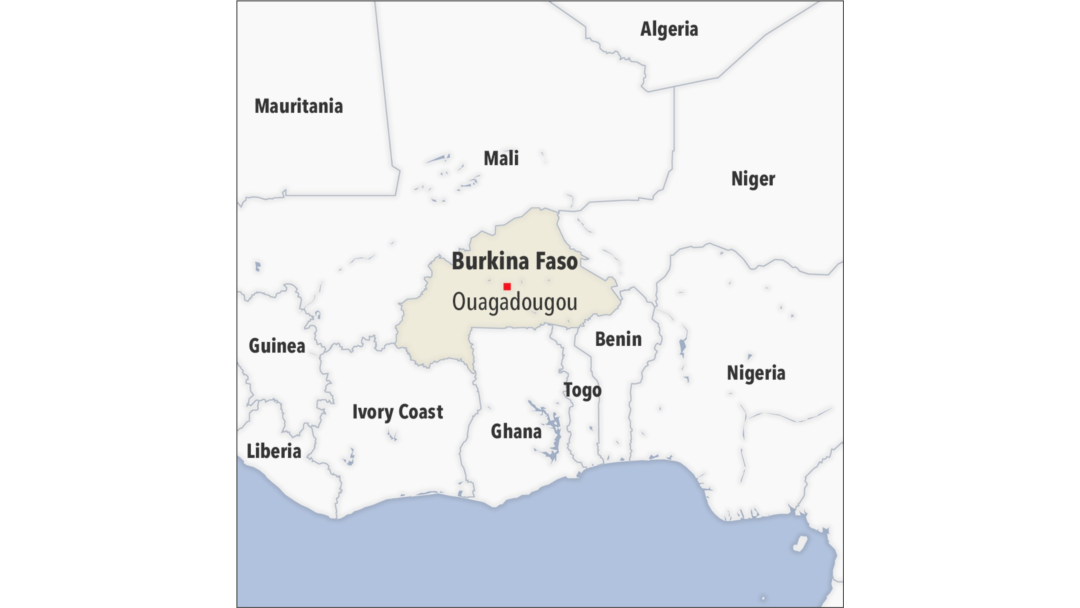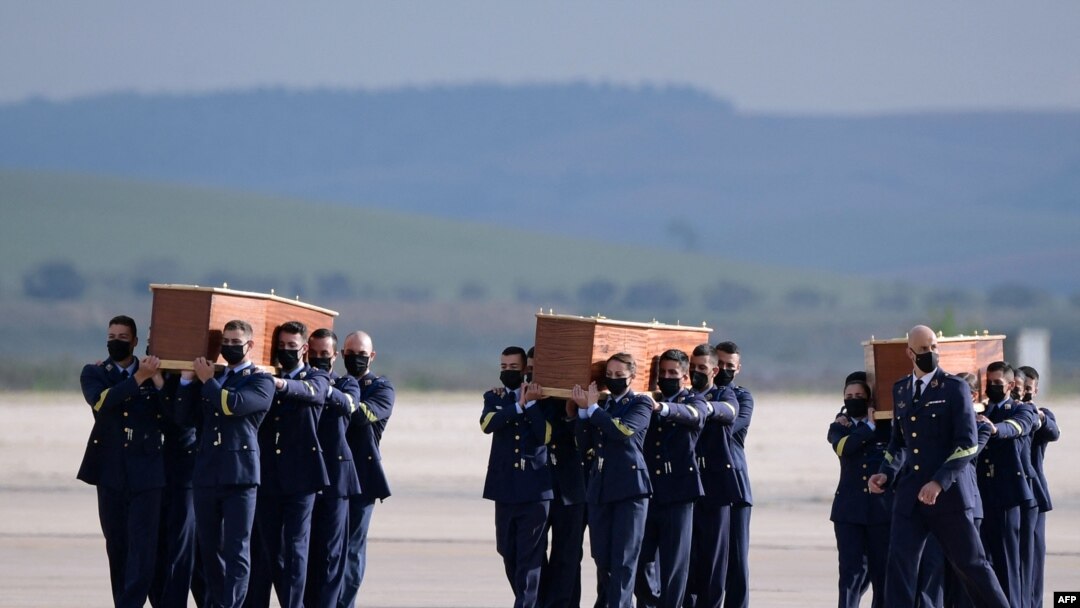The killings this week in Burkina Faso of two Spanish journalists, along with an Irish conservationist, has underscored the risks journalists face in Africa's Sahel region. Press freedom supporters say threats to reporters have been growing in the Sahel, along with Islamist insurgencies in the region.
The bodies of Spanish journalists David Beriain and Roberto Fraile arrived in Spain on Friday. They were working with Irish conservationist Rory Young on a documentary about poaching in Eastern Burkina Faso this week when they were ambushed, abducted and killed.
A Burkinabé soldier accompanying the group on Monday remains missing.
The Associated Press reported an al-Qaida-linked jihadist group claimed responsibility for the attack.

The killings underscored the increasing risks of reporting in parts of Burkina Faso and its Sahel region neighbors, Mali and Niger.
The U.N.'s refugee agency says armed violence in the Sahel has displaced nearly three million people since 2018.
Jean Louis Ouango is a freelance journalist based in Burkina Faso's Eastern Region capital, Fada N'Gourma, just an hour's drive from Pama Reserve, where the Europeans were attacked.
Speaking via a messaging application, Ouango said the country's growing violence has limited the ability of journalists to move between the five provinces in the Eastern Region and do their work. In the last four years, he said, it became less and less safe for journalists to venture out to those areas.
Mahamoudou Savadogo, an independent security consultant in Burkina Faso and a Sahel extremism researcher for a Senegal-based think tank, said the road the Europeans were driving on when attacked has been controlled by armed terrorists since 2019.
It is suicide to take that road, Savadogo said from Ouagadougou via a messaging application, adding that the risk of being targeted is especially high if you're escorted by the armed forces or other security.
It's not clear how much of a risk the Irish conservationist and Spanish journalists knew they were taking.
The New York City-based Committee to Protect Journalists' (CPJ) this week called for authorities to investigate the killings. Speaking from New York via a messaging application, CPJ Africa Program Director Angela Quintal noted worsening security for reporting in the Sahel.
"The situation for journalists, generally, is not good," she said. "I mean, one of the top investigative journalists in Burkina Faso is now facing criminal defamation, and he's being sued by the ruling party. ... So, all of this, including the fact that journalists who are trying to cover the insurgency, what's happening in Burkina Faso and in the Sahel generally, are really putting themselves in grave danger."
The Association of Journalists of Burkina echoed the call for an investigation.
But bringing terrorists to justice in the Sahel is unlikely, as CPJ research shows that, globally, in about 80% of cases where journalists are killed, the killers walk free.


